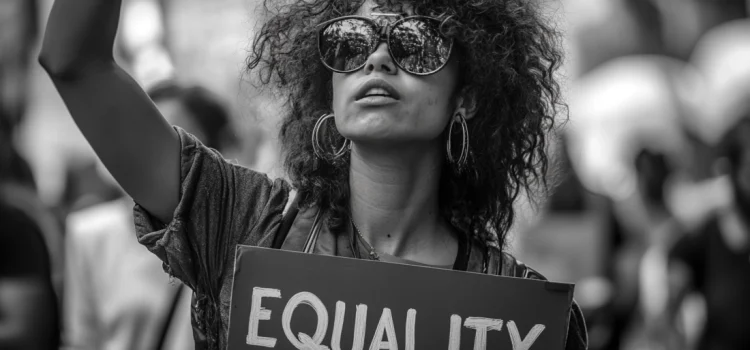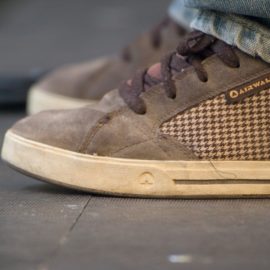

This article is an excerpt from the Shortform book guide to "Unbound" by Tarana Burke. Shortform has the world's best summaries and analyses of books you should be reading.
Like this article? Sign up for a free trial here.
How did Tarana Burke use her childhood shame to become an activist? Can anger be a good source of activism?
Although Burke’s childhood was defined by shame, that feeling transmuted into anger when she was a teenager—and Burke channeled it into community activism. In Unbound, she discusses the events that led to this transformation and explores how activism made her feel empowered.
Check out how to use anger as motivation by looking at Tarana Burke’s experiences.
Burke’s Pro-Black Radicalism Empowered Her
Burke explains that although she found solace in the Catholic Church’s teachings about redemption and forgiveness as a child, she gradually divested from the church she’d grown up in and chose to attend a public high school. This transition took place because her grandfather, a fiercely pro-Black radical follower of activists like Malcolm X, encouraged her to read books about Black history and to question the church’s complicity in the slave trade. In high school, she became known for her pro-Black views, which she defended staunchly when faced with racist lessons and comments from white teachers.
Around the same time, Burke’s shame transmuted into anger. Burke explains that when she had conflicts with other girls at her high school, an internal switch flipped—instead of silently putting up with this mistreatment like she would have as a child, she exploded with rage and physically fought back. Standing up for herself and learning how to use anger as motivation made Burke feel empowered after a lifetime of helplessly enduring victimization. Due to the fights she got into, her mother transferred her to a different high school at the end of her freshman year. At her new school, Burke resolved to imitate her role model, Angelou. She stopped fighting, excelled academically, and got her first job—and her boss nominated her to attend a school-sponsored youth leadership conference.
The leadership conference Burke attended opened the door to a healthier outlet for her rage. It was organized by the 21st Century Youth Leadership Movement (21C), through which civil rights-era activists taught young people the ins and outs of community activism. Burke became president of her high school’s chapter of 21C, where she worked with colleagues on the Central Park Five case, which involved the wrongful conviction of five teenage boys of color (one of whom she knew) for the rape of a white female jogger in New York City’s Central Park. Burke says that although she still wasn’t acknowledging or dealing with the abuse she suffered, her work as a pro-Black activist with 21C helped her funnel her rage into a productive cause: fighting oppression.
Burke’s Activism Was Both Rewarding and Challenging
Burke says her involvement in 21C also opened the door to higher education and a career. After high school, she didn’t have the financial resources to attend college, so she took some time off from school and worked to save money. When one of 21C’s leaders, Rose Sanders, heard about her plan, she pulled strings to get Burke accepted to Alabama State University with full funding. During Burke’s freshman year of college (1992), she continued her activism by organizing protests against racism and sexism. In recognition of her talent and passion for community activism, 21C offered Burke an organizing job in Selma, Alabama when she graduated from college.
Burke explains that her job entailed helping to lead youth camps. At the first camp she organized, she connected with a troubled girl named Heaven. Burke believed she could teach Heaven to channel her rage about injustice into more productive outlets, and together they made progress toward that goal.
However, when Heaven confided in her that she’d been sexually abused, Burke handled it poorly. The conversation triggered her own feelings of grief and shame, so she ended it abruptly and referred Heaven to another camp leader. This broke Heaven’s fragile trust and their connection. When Burke thought about how to handle similar situations in the future, she realized she had to work through her trauma. She started by admitting to herself that she’d been abused.

———End of Preview———
Like what you just read? Read the rest of the world's best book summary and analysis of Tarana Burke's "Unbound" at Shortform.
Here's what you'll find in our full Unbound summary:
- The origin of the viral phrase “me too”
- What Tarana Burke did to heal from the experience of childhood sexual abuse
- The story of the #MeToo movement






